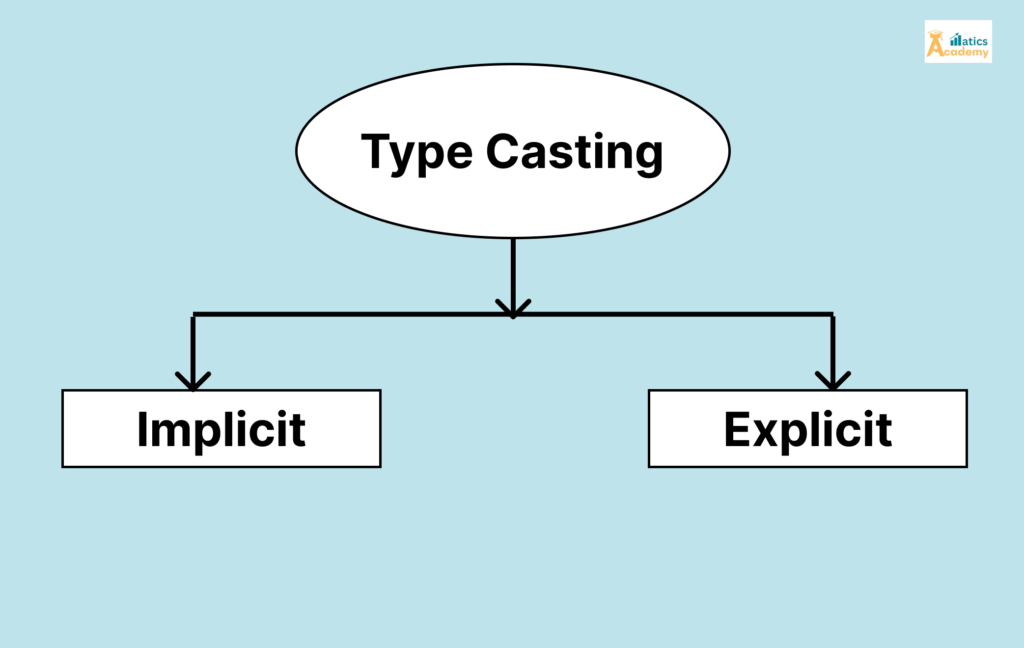Introduction to Type Casting
Type casting in C allows developers to convert one data type into another. By mastering type casting, you can ensure compatibility between variables of different types, optimize memory usage, and prevent unexpected behavior in your programs. This guide explains the concept of type casting, its types, and how to use it effectively.
Key Benefits of Understanding Type Casting
- Data Compatibility: Enables seamless conversion between different data types.
- Improved Code Robustness: Prevents type mismatch errors during compilation.
- Enhanced Functionality: Allows the use of generic functions and pointer operations.
Types of Type Casting in C
C supports two main types of type casting:

Implicit Type Casting (Type Promotion)
Also known as automatic type conversion, the compiler performs this casting without user intervention. It typically occurs when a smaller data type is assigned to a larger one.
Key Features:
- Automatic conversion by the compiler.
- Converts data types with no data loss (e.g.,
inttofloat). - Ensures compatibility in expressions.
Example:
#include <stdio.h>
int main() {
int num = 10;
float result = num; // Implicit casting from int to float
printf("Result: %.2f\n", result);
return 0;
}Explicit Type Casting in C
Explicit type casting involves manually converting one data type into another using the cast operator (type).
Key Features:
- Requires explicit syntax by the developer.
- May result in data loss when converting to a smaller data type.
- Useful for precision control.
Example:
#include <stdio.h>
int main() {
float num = 5.75;
int result = (int)num; // Explicit casting from float to int
printf("Result: %d\n", result);
return 0;
}
Best Practices for Using Type Casting in C
- Avoid Unnecessary Casts: Use casting only when required to prevent code clutter.
- Check for Data Loss: Be cautious while casting from larger to smaller data types.
- Understand Compiler Warnings: Address warnings related to implicit casting.
Advantages and Challenges of Type Casting in C
Advantages:
- Simplifies mixed-type expressions.
- Enhances code flexibility and reusability.
- Prevents potential runtime errors.
Challenges:
- Data loss in explicit casting can lead to incorrect results.
- Misuse may cause undefined behavior or bugs.
Conclusion
Type casting in C is an essential concept for developers, allowing for greater flexibility and control over data manipulation. Understanding both implicit and explicit casting helps ensure compatibility, avoid runtime errors, and optimize program functionality. While implicit casting is convenient, explicit casting offers precision when working with mixed data types. By following best practices and being mindful of potential pitfalls like data loss, programmers can leverage type casting to write more efficient and robust code. Mastering type casting will not only enhance your programming skills but also prepare you for real-world challenges in software development.
Interview Questions
Question 1: What is the difference between implicit and explicit Type Casting in C?
Company: TCS (Tata Consultancy Services)
Answer:
Implicit type casting is automatically handled by the compiler and does not require user intervention. On the other hand, explicit type casting is manually performed by the programmer using the (type) operator.
Example:
Implicit:
int x = 10; float y = x; // Automatic conversion
Explicit:
float x = 10.5; int y = (int)x; // Manual conversion
Question 2: Can explicit Type Casting in C cause data loss? Explain with an example.
Company: Infosys
Answer:
Yes, explicit type casting can result in data loss when converting a larger data type to a smaller one. For example, casting a float to int truncates the fractional part.
Example:
float num = 5.75;
int result = (int)num; // Data loss: result = 5
printf("%d\n", result);
Question 3: Why is Type Casting in C important in pointer arithmetic?
Company: Wipro
Answer:
Type casting ensures proper pointer manipulation and interpretation of memory. For instance, when dealing with generic data structures like void*, type casting is essential to access the actual data type.
Example:
void* ptr;
int num = 10;
ptr = #
printf("%d\n", *(int*)ptr); // Type cast void* to int*
Question 4: How does implicit Type casting handle mixed data type expressions?
Company: Cognizant
Answer:
In mixed expressions, implicit type casting promotes smaller types to larger ones to ensure no data loss during operations.
Example:
int num = 10;
float result = num + 2.5; // num is promoted to float
printf("%.2f\n", result);
Question 5: Is explicit Type Casting mandatory for all type conversions?
Company: HCL Technologies
Answer:
No, explicit casting is only mandatory when the compiler cannot perform implicit conversion due to potential data loss or type mismatch.
Example:
int num = 100; char ch = (char)num; // Explicit cast required for potential truncation
QUIZZES
Type casting in C Quiz
